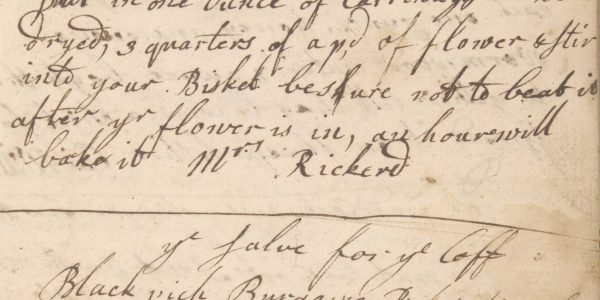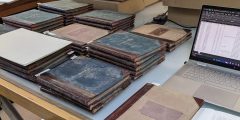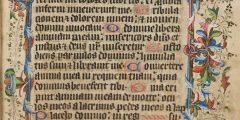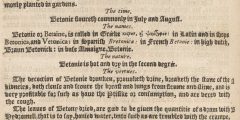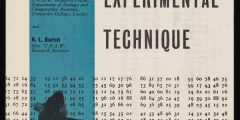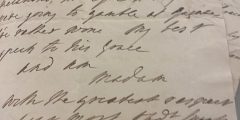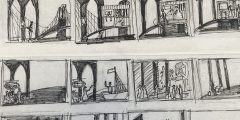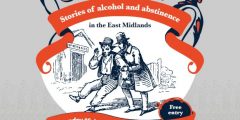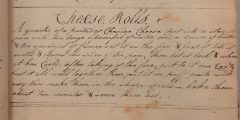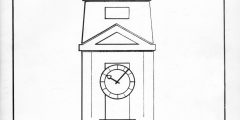The Ballad of the Cherry Tree
December 11, 2023
This is a guest post by Trish Kerrison, who volunteered at Manuscripts and Special Collections between April and September 2023, cataloguing medicinal herbs and their uses in remedies from material held in our collections. In Mrs Willoughby’s Housekeeping Book of 1737 (MS 87/4), to which Mother Bird is a frequent contributor, there is a receipt …
Cataloguing History: Time with the Manvers Collection
November 21, 2023
This is a guest post by Andy Judson, a student volunteer studying towards a PhD in History at University of Nottingham. He recently completed a 60-day placement funded by the Midlands4Cities Doctoral Training Partership and the Arts and Humanities Research Council (AHRC). The placement engaged him to work with part of the extensive Manvers Collection, …
A Blessing and A Curse
November 8, 2023
The Rushall Psalter is a remarkable manuscript in many ways: it is an undoubtedly beautiful volume which has lived a long and unusual life – not to mention the fact that it is the subject of a 600 year old curse… As suggested by its name, the volume’s content is largely religious in nature, consisting …
Marginalia in a Medical Manuscript
October 25, 2023
This is a guest post by Tabitha Gresty, who volunteered at Manuscripts and Special Collections between April and September 2023, cataloguing medicinal herbs and their uses in remedies from material held here at Manuscripts and Special Collections. Since working on the Early Modern Recipes Research project, I have been constantly amazed by the breadth of …
Advocates for animal welfare: The Three Rs
June 30, 2023
Debate has long raged about the use of animals by humans, both as food and for the advancement of science. The National Anti-Vivisection Society was founded back in 1875 and the British Union for the Abolition of Vivisection in 1898, by Frances Power Cobbe, campaigner for women’s suffrage and anti-vivisection activist. The Cruelty to Animals …
Reading the correspondence of the Duchess of Portland
May 18, 2023
This is a guest blog by Arts Faculty Placement student Nabiha Iqbal, who in 2023, worked on cataloguing the papers of Dorothy Bentinck, Duchess of Portland (1750-1794). I was granted the unique opportunity to revisit the lives of the noble men and women of 18th century England through their primary means of communication: letters. Each …
Matt Marks archive collection: ‘The Bridge’ and how it came to be
July 21, 2022
This is a guest post by Aldea Toth, 2nd year English undergraduate at UoN who completed a student placement working on the archive of Matt Marks. When I was volunteering at the Manuscripts and Special Collections Department, I had the pleasure of archiving the works of the late Matt Marks, who was once a student …
Last Orders at the Weston Gallery
June 7, 2022
This is a guest post by Dr David Beckingham, co-curator of the Last Orders exhibition, which opens at the Weston Gallery, Lakeside Arts in June. Last Orders examines cultures of alcohol consumption and abstinence in the East Midlands, with a particular focus on the eighteenth and nineteenth centuries. Ubiquitous though pubs and drink may have …
Say Cheese!
September 13, 2021
We may be approaching the end of picnic season, but we’re not quite ready to abandon buffet style finger foods just yet. We recently tried out an 18th century recipe for cheese rolls from one of the household recipe books in the archive as part of the 2021 Heritage Open Day theme of Edible England. …
Carry on Collecting: Tri Campus contemporary collecting during lockdown
April 27, 2020
Manuscripts and Special Collections (MSC) may be WFH and unable to access the collections in our manuscripts store, but we’re still busy improving our catalogues, promoting our resources, and we’re also still busy sourcing material to add to our archives. The University’s new digital preservation system allows us to manage and preserve digital items such …

